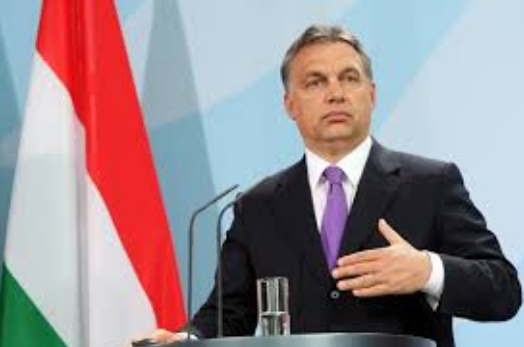Hungary’s prime minister has announced a raft of measures aimed at boosting the country’s declining birth rate and reducing immigration.
Giving his annual State of the Nation address Sunday, Hungarian Prime Minister Viktor Orban announced a seven-point “Family Protection Action Plan” designed to promote marriage and families.
Measures announced included waivers on personal income tax for women raising at least four children for the rest of their lives and subsidies for large families to buy larger cars. The ‘action plan’ also extended a loan program to help families with at least two children to buy homes. Every woman under 40 will also be eligible for a preferential loan when she first gets married.
The government has also said it will spend more on Hungary’s heathcare system and will create 21,000 creche places. In addition, grandparents will be eligible to receive a childcare fee if they look after young children instead of the parents, Orban said.
“There are fewer and fewer children born in Europe. For the West, the answer (to that challenge) is immigration. For every missing child there should be one coming in and then the numbers will be fine,” Orban said, Reuters reported.
“But we do not need numbers. We need Hungarian children,” he said, announcing the incentives program.
Referring to the action plan, Orban said “this is Hungary’s answer (to challenges) rather than immigration,” he said, according to English-speaking news service Daily News Hungary.
Orban is a well-known critic of immigration and Hungary’s government caused controversy in the European Union, of which Hungary is a member, when it (along with its eastern European neighbors) refused to allow asylum seekers to enter the country during the migration crisis in the continent in 2015.
Hungary’s government led by Orban’s Fidesz party has also been accused of backtracking on democratic values, the rule of law, minority rights and media freedoms. As a result, it could now face punitive action from the EU, along with Poland, after members of the European parliament (MEPs) voted last year to trigger disciplinary procedures against it because it was seen as breaching the bloc’s core values.
Like other conservative, nationalist governments in Europe, Hungary is worried about migration and its declining birth rate. Eurostat data from mid-2018, the latest available, shows that the birth rate is continuing to decline in the EU as a whole. In 2017, 5.1 million babies were born in the EU, 90,000 less than the year before. In the same year, 5.3 million deaths were registered.
While birth rates remain robust in Ireland, Sweden, the U.K. and France, the lowest birth rates were registered in Italy, Greece, Portugal and Spain. Birth rates in Hungary are below the EU average – In Hungary the crude birth rate in 2017 was 9.7 per 1,000 residents, just below the EU average of 9.9 per 1,000 residents.
In 2017, 94,600 live births were registered in Hungary and 131,900 deaths were registered, equating to a population decline of just over 37,000 people, Eurostat data shows.













